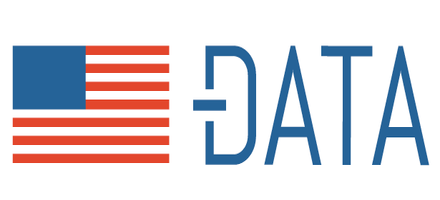Privacy Act
The Privacy Act of 1974 is a United States federal law that establishes a Code of Fair Information Practice that governs the collection, maintenance, use, and dissemination of personally identifiable information about individuals that is maintained in systems of records by federal agencies.
Freedom of Information Act
The Freedom of Information Act (FOIA), 5 U.S.C. § 552, is a federal freedom of information law that requires the full or partial disclosure of previously unreleased information and documents controlled by the United States government upon request. The bill was enacted July 4, 1966, but had an effective date of one year after the date of enactment, or July 4, 1967.
Government in the Sunshine Act
The Government in the Sunshine Act is a U.S. law passed in 1976 that affects the operations of the federal government, Congress, federal commissions, and other legally constituted federal bodies. The Sunshine Act provides, with ten specified exemptions, that every portion of every meeting of an agency shall be open to public observation.
Classified National Security Documents
President Clinton issued executive directives (and amendments to the directives) that allowed the release of previously classified national security documents more than 25 years old and of historical interest, as part of the FOIA.
Electronic Freedom of Information Act
The Electronic Freedom of Information Act Amendments of 1996 (E-FOIA) stated that all agencies are required by statute to make certain types of records, created by the agency on or after November 1, 1996, available electronically.
Sunlight Foundation
The Sunlight Foundation was founded by Ellen S. Miller and Michael R. Klein in April 2006 with the goal of increasing transparency and accountability in the United States Congress, the executive branch, and in state and local governments.

Open Government Initiative
The Open Government Initiative is an effort by the administration of President of the United States Barack Obama to "[create] an unprecedented level of openness in Government.". The directive starting this initiative was issued on January 20, 2009. President Obama’s Open Government Directive (December 8, 2009) presented a definition of “open government”: the three principles of transparency, participation, and collaboration form the cornerstone of an open government.
Data.gov
Data.gov is a U.S. government website launched in late May 2009 by the then Federal Chief Information Officer (CIO) of the United States, Vivek Kundra. Data.gov aims to improve public access to high value, machine readable datasets generated by the Executive Branch of the Federal Government. The site is a repository for federal, state, local, and tribal government information, made available to the public.

Code for America
Code for America was founded in 2009 to address the widening gap between the public and private sectors in their effective use of technology and design. The organization began by enlisting technology and design professionals to work with city governments in the United States in order to build open-source applications and promote openness, participation, and efficiency in government, and now works with state, county, and federal government to spread the principles and practices of "delivery-driven government." It has grown into a cross-sector network of public sector change agents and a platform for "civic hacking".

Data.gov.uk
Data.gov.uk is a UK Government project to make available non-personal UK government data as open data. It was launched in closed beta in September 2009 and publicly launched in January 2010.

Open Government Partnership
The Open Government Partnership (OGP) was formally launched on September 20, 2011 on the sidelines of a UN General Assembly meeting during which Heads of State from 8 founding governments (Brazil, Indonesia, Mexico, Norway, Philippines, South Africa, United Kingdom, and the United States) endorsed the Open Government Declaration and announced their country action plans along with an equal number of civil society leaders. The eight founding members also welcomed the commitment of 38 governments to join OGP. Since its creation, OGP has resulted in over 2,500 commitments made by 79 participating countries, covering a third of the world's population.

Open Data Policy
In May 2013 Barack Obama issued an executive order which established the Open Data Policy along with a memorandum from the Office of Management and Budget which supported that policy. These policies were developed as a way to promote economic growth and create jobs. An executive order, “Making Open and Machine-Readable the New Default for Government Information,” and another memo, “Open Data Policy: Managing Information as an Asset,” supported his call to create a more participatory, collaborative and transparent government. The White House’s Project Open Data grew out of these memos. It’s a collection of code, tools and case studies to help agencies adopt open data programs and share resources and information on open data.
DATA Act
The Digital Accountability and Transparency Act of 2014 (DATA Act) is a law that aims to make information on federal expenditures more easily accessible and transparent. The law requires the U.S. Department of the Treasury to establish common standards for financial data provided by all government agencies and to expand the amount of data that agencies must provide to the government website, USASpending. The goal of the law is to improve the ability of Americans to track and understand how the government is spending their tax dollars.
European Data Portal
The European Data Portal is an initiative of the European Commission launched on November 16, 2015. The Portal was created to gather Public Sector Information of the 28 European Member States and the four EFTA countries (these countries are also referred to as the EU28+). The EU28+ countries publish public data on national data portals and geospatial portals. In order to provide one single access point to all of this data, the European Data Portal was created.